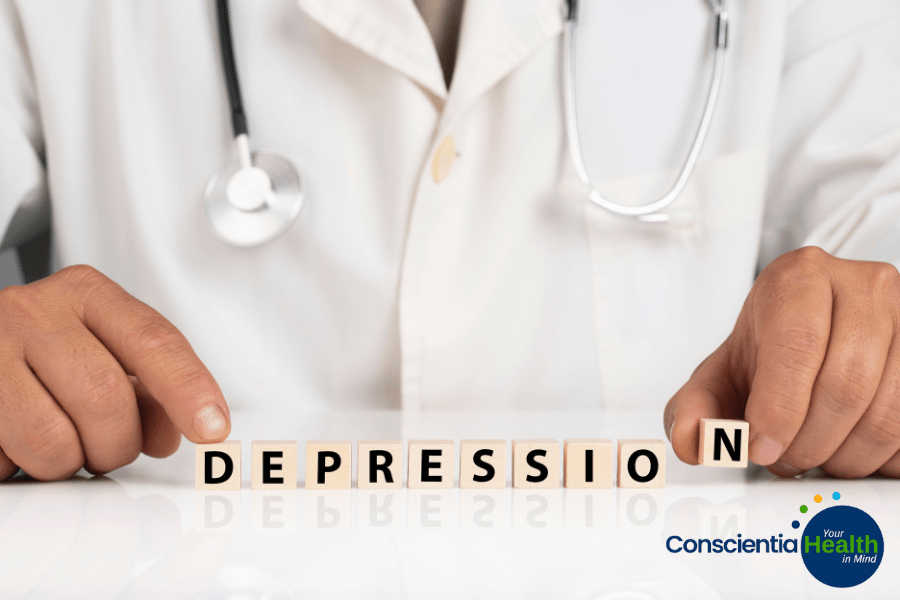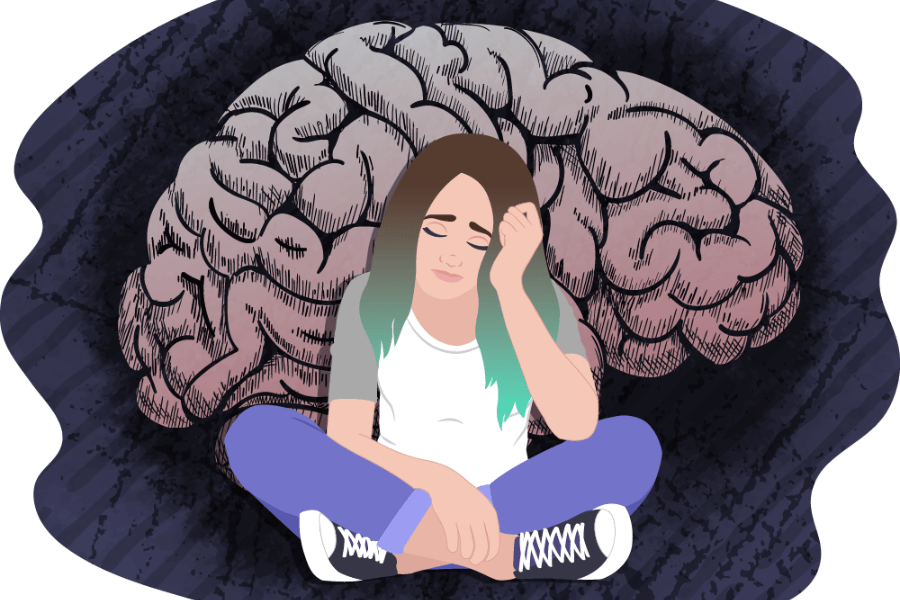Introduction
Depression is a complex and often misunderstood mental health condition that affects millions of people worldwide. Understanding depression is crucial for recognizing its impact and finding effective ways to manage and treat it. At Conscientia Health, we aim to provide comprehensive insights into depression to help you and your loved ones navigate this challenging condition. This blog post will explore the top 10 facts about depression, shedding light on its prevalence, symptoms, causes, types, and more.
Fact 1: Prevalence
Depression is one of the most common mental health disorders globally. According to the World Health Organization (WHO), more than 264 million people of all ages suffer from depression.
- Global prevalence: 4.4% of the world’s population
- By gender: Women are more likely to be affected than men
- By age: Most prevalent in adults aged 18-25
These statistics highlight the widespread nature of depression, affecting individuals across all demographics.
Fact 2: Symptoms Of Depression
Depression manifests through a range of symptoms that can vary in intensity and duration. Common symptoms include:
- Emotional: Persistent sadness, hopelessness, irritability
- Physical: Fatigue, changes in appetite, sleep disturbances
- Cognitive: Difficulty concentrating, indecisiveness, negative thoughts
It is important to recognize that symptoms can differ from person to person, making it essential to seek professional help for an accurate diagnosis.
Fact 3: Causes Of Depression
Depression is a multifaceted condition with various contributing factors:
- Biological factors: Genetics, neurotransmitter imbalances, hormonal changes
- Psychological factors: Trauma, chronic stress, negative thinking patterns
- Environmental factors: Major life events (e.g., loss of a loved one, job loss), social isolation, lifestyle habits
Understanding the underlying causes of depression can help in developing personalized treatment plans.
Fact 4: Types of Depression
Depression is not a one-size-fits-all condition. There are several types, each with its unique characteristics:
- Major Depressive Disorder (MDD): Severe symptoms that interfere with daily life
- Persistent Depressive Disorder (Dysthymia): Long-term, less severe symptoms
- Bipolar Disorder: Alternating periods of depression and mania
- Seasonal Affective Disorder (SAD): Depression related to seasonal changes
- Postpartum Depression: Depression occurring after childbirth
Each type requires a tailored approach to treatment and management.
Fact 5: Diagnosis Depression
Accurate diagnosis of depression involves a thorough evaluation by a mental health professional. Key diagnostic criteria include:
- DSM-5 criteria: Presence of specific symptoms for at least two weeks
- Assessment tools: Questionnaires, interviews, and physical exams
Professional assessment is crucial for distinguishing depression from other conditions and determining the best course of action.
Fact 6: Impact on Daily Life
Depression can significantly impact various aspects of daily life:
- Work: Reduced productivity, absenteeism
- Relationships: Strained interactions, social withdrawal
- Self-care: Neglect of personal hygiene, poor dietary habits
The long-term consequences of untreated depression can be severe, affecting overall well-being and quality of life.
Fact 7: Depression Treatment Options
Effective treatment of depression often involves a combination of approaches:
- Medication: Antidepressants, mood stabilizers
- Therapy: Cognitive Behavioral Therapy (CBT), psychotherapy
- Lifestyle changes: Regular exercise, balanced diet, adequate sleep
- Alternative treatments: Mindfulness meditation, acupuncture
A personalized treatment plan can help manage symptoms and improve functioning.
Fact 8: Stigma and Misconceptions
The stigma surrounding depression can prevent individuals from seeking help. Common misconceptions include:
- “Depression is just sadness”: Depression is a serious medical condition, not merely a transient mood
- “You can just snap out of it”: Overcoming depression requires professional intervention
- “It’s a sign of weakness”: Depression is not a character flaw but a health issue
Combating stigma involves education, empathy, and open conversations about mental health.
Fact 9: Coping Strategies
Managing depression involves various coping strategies:
- Support systems: Lean on friends, family, and support groups
- Self-care practices: Regular exercise, healthy eating, adequate sleep
- Stress management: Mindfulness, relaxation techniques, time management
Practical tips and consistent self-care can aid in managing symptoms and improving quality of life.
Fact 10: Research and Future Directions
Research on depression continues to evolve, leading to new insights and treatments. Recent advancements include:
- Genetic studies: Identifying genetic markers associated with depression
- Neuroimaging: Understanding brain changes in depression
- Innovative therapies: Ketamine treatments, transcranial magnetic stimulation (TMS)
Ongoing research is essential for developing more effective treatments and understanding the complexities of depression.
Summary of Top 10 Facts About Depression
| Fact | Key Points |
|---|---|
| Prevalence | Global, gender, and age statistics |
| Symptoms | Emotional, physical, and cognitive symptoms |
| Causes | Biological, psychological, and environmental factors |
| Types of Depression | MDD, Dysthymia, Bipolar Disorder, SAD, Postpartum Depression |
| Diagnosis | DSM-5 criteria, assessment tools |
| Impact on Daily Life | Effects on work, relationships, and self-care |
| Treatment Options | Medication, therapy, lifestyle changes, alternative treatments |
| Stigma and Misconceptions | Common myths and their impacts |
| Coping Strategies | Support systems, self-care practices, stress management |
| Research and Future Directions | Genetic studies, neuroimaging, innovative therapies |
Key Takeaways About Depression
- Depression is a widespread and serious mental health condition.
- Symptoms of depression vary widely and can affect emotional, physical, and cognitive aspects of life.
- Multiple factors contribute to the development of depression, including genetics, environment, and psychological factors.
- There are several types of depression, each requiring specific treatment approaches.
- Accurate diagnosis is essential for effective treatment and management.
- Depression can significantly impact daily functioning, including work, relationships, and self-care.
- Treatment options include medication, therapy, lifestyle changes, and alternative treatments.
- Stigma and misconceptions about depression can hinder individuals from seeking help.
- Practical coping strategies and support systems are vital for managing depression.
- Ongoing research is crucial for advancing our understanding and treatment of depression.
Conclusion
Understanding depression is a critical step in addressing its impact and finding effective ways to manage it. At Conscientia Health, we are committed to providing resources and support to those affected by depression. If you or someone you know is struggling, seek professional help and explore the various treatment options. Together, we can combat the stigma, spread awareness, and improve mental health outcomes.
At Conscientia Health, we believe that knowledge is power. By spreading awareness and providing accurate information about depression, we can help create a supportive environment for those affected by this condition. If you need assistance or want to learn more, visit our website or contact us for more resources.



